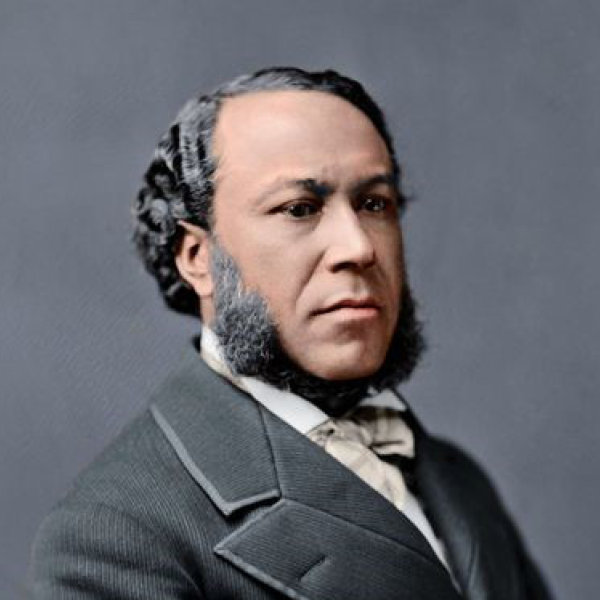Joseph Rainey
Joseph Rainey was born in Georgetown, S.C. in 1832 to Edward and Gracia Rainey. The family lived enslaved on a plantation until his father, a barber, secured their freedom when Rainey was 10 years old. They moved to Charleston where Rainey was privately tutored in secret. He never attended a formal school and was completely self-taught.
Rainey escaped to Bermuda during the Civil War, but returned to South Carolina in 1866 with his wife Susan. He began to participate in local politics, realizing that the best way to effect change was to be part of the government where change could be implemented. On January 4, 1868, Rainey served as a delegate to the statewide constitutional convention.
Rainey made his mark on South Carolina and American history when he became the first duly-elected Black member of the U.S. Congress where he represented the state from 1870 until 1879. He helped to change the image of people of color in politics and proved himself to be an eloquent speaker determined to protect the rights of all. He particularly championed the causes of the Chinese railway workers, Native Americans, and Freedmen.
As Congressman, Rainey was able to draw attention to treatment of people of color in public places. This made him a target of the KKK with threats so frequent and violent that he had to move his wife and children to Connecticut while keeping his home in South Carolina so that he could continue to represent his district.
Defeated for re-election, Rainey took a position in the U.S. Treasury Department before starting a series of businesses in the 1880s. He died in Georgetown in 1887.
Rainey’s legacy lives on both in South Carolina and in Washington, D.C. A display in the U.S Capitol commemorates the 150th anniversary of Rainey’s seating. The Georgetown, S.C. Post Office was named after him in November 2021. Room-H150 in the U.S. Capitol Building was renamed the Joseph H. Rainey Room in February 2022.

